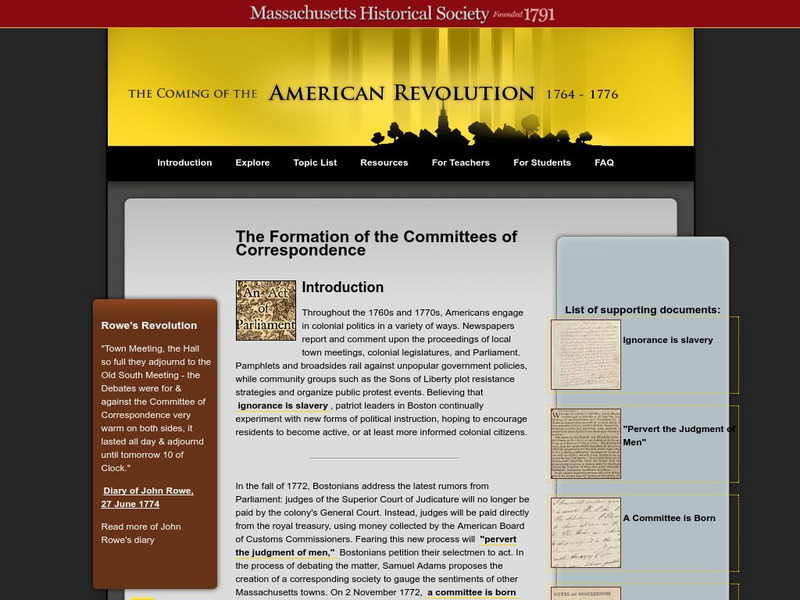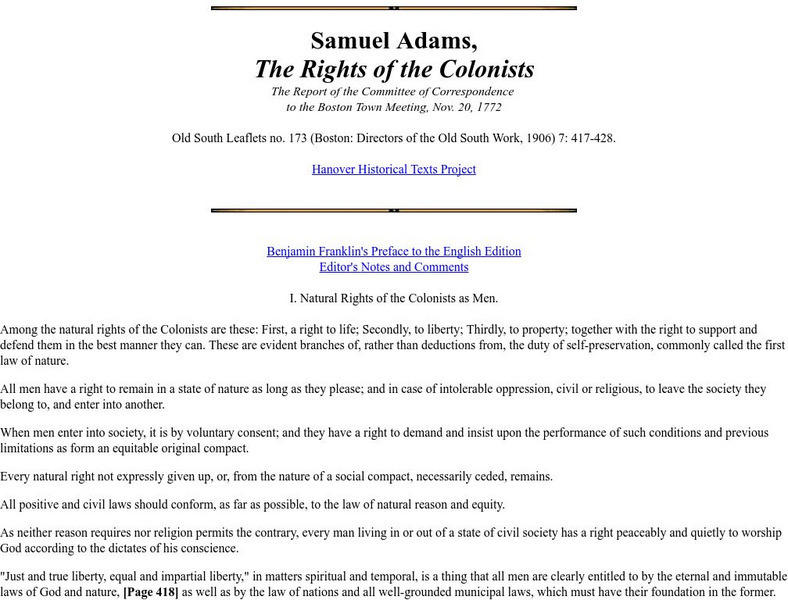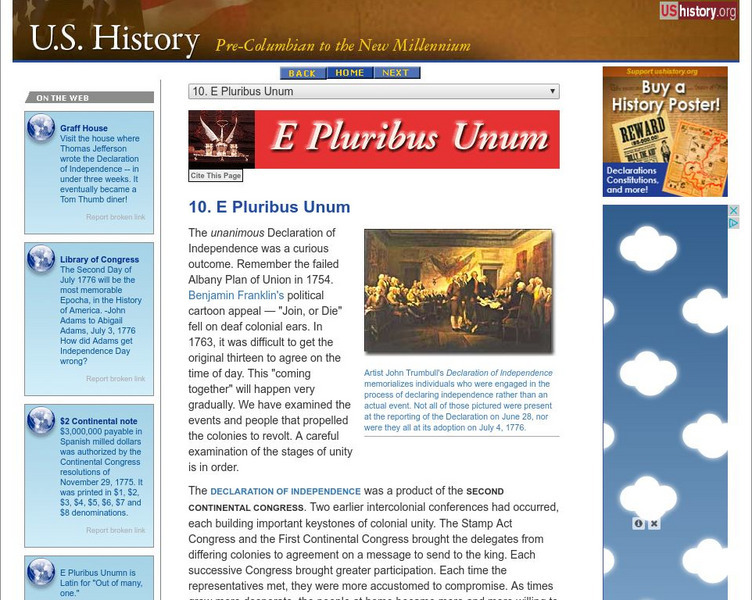Curated OER
Lesson for Core Concept #7: Differing Expectations
Students investigate how American colonists felt they would be impacted by conflict with the British. In this colonial America lesson, students examine the Declaration of Independence, papers from the Committees of Correspondence, and...
Massachusetts Historical Society
Mhs: Coming of the American Revolution: Committees of Correspondence
Discusses the formation of the committees of correspondence movement starting with the first one in Boston in 1772. Includes supporting primary source documents and great resources for teachers including lesson plans.
Hanover College
Hanover College: The Rights of the Colonists
The original text of "The Report of the Committee of Correspondence to the Boston Town Meeting, Nov. 20, 1772", written by Samuel Adams and including the preface by Benjamin Franklin written for the edition printed in England.
OpenStax
Open Stax: The Destruction of the Tea and the Coercive Acts
From a chapter on "Imperial Reforms and Colonial Protests," this section describes the socio-political environment in the colonies in the early 1770s, explains the purpose of the Tea Act of 1773, and takes a look at the Coercive Acts.
Independence Hall Association
U.s. History: Account of the Declaration: Jefferson's Story
Thomas Jefferson's account of events leading up to and the actions of the First Continental Congress, including information about the Committees of Correspondence which communicated through Circular Letters.
Independence Hall Association
U.s. History: Making Rules
Follow the incremental process that the colonial leaders took over a ten-year period of time making new rules that would finally result in independence from Great Britain. See how many of them really didn't plan on independence, but that...
Independence Hall Association
U.s. History: Loyalists, Fence Sitters, and Patriots
Read about the war of propaganda the Patriots needed to wage in order to persuade the vast majority of Americans, who were at first ambivalent to the cause of independence, to support the ideals of the Revolutionary War.
Independence Hall Association
U.s. History: First Continental Congress
By 1774 the colonists had had enough of what they saw as British disrespect and lack of concern about their grievances. Read about the cooperation of the colonies in forming the First Continental Congress to address these issues.
Independence Hall Association
U.s. History: Committees of Correspondence
See how organization can be a stepping stone to freedom. Read about the actions and the reasons behind those actions of the Committees of Correspondence prior to the Revolutionary War.
Independence Hall Association
U.s. History: E Pluribus Unum
The fact that the Second Continental Congress convened was evidence that the colonists had had enough from the British Parliament. Read about the ways the colonies finally began to work together and focus on a common plan, resulting in...
Varsity Tutors
Varsity Tutors: Archiving Early America: Committee of Correspondence: Moving to Independence
A long article on the many men and events involved in the various Colonial Committees of Correspondence.












